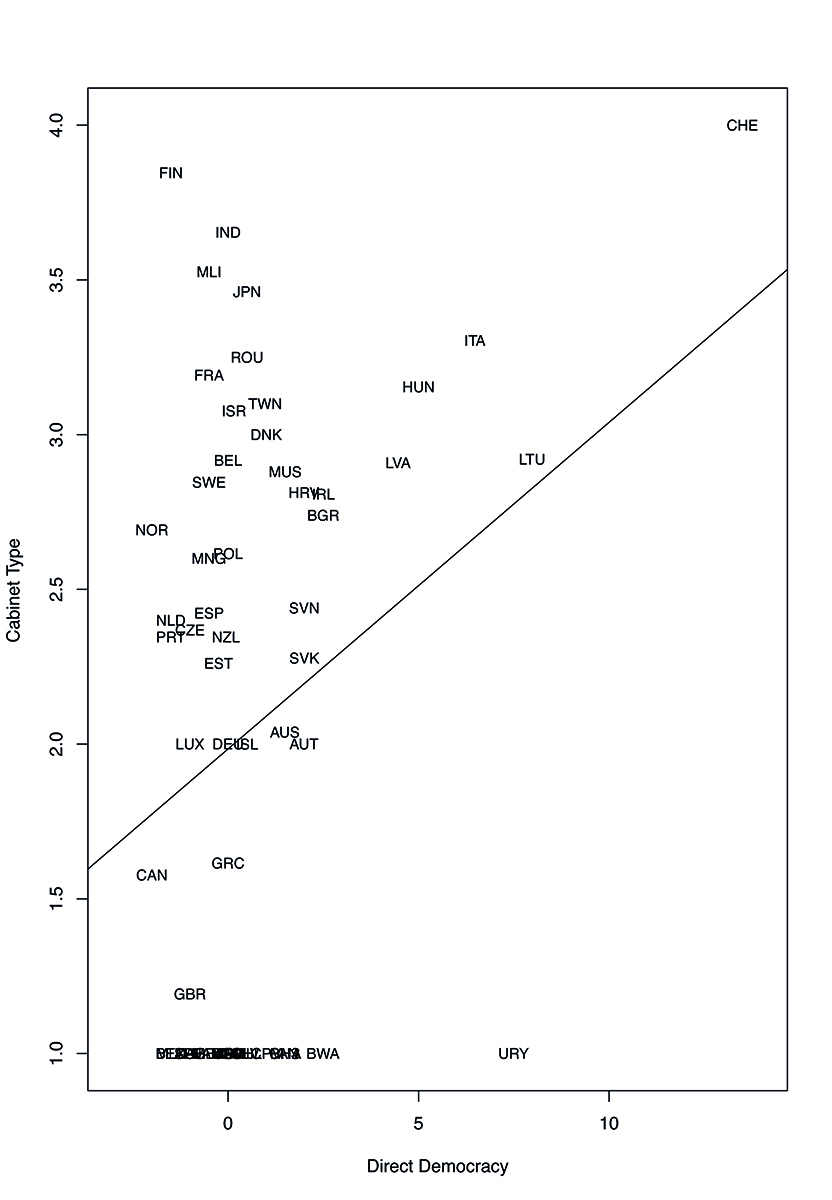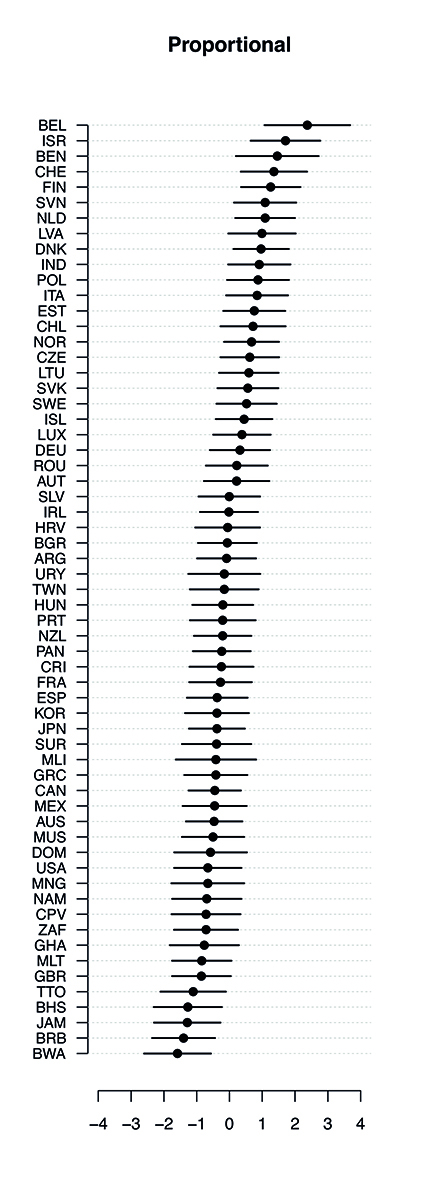Shared power, more satisfied people
The attack by authoritarian governments on their own political institutions is pushing many democracies to their limits. This affects their legitimacy, among other things. In a wide-ranging study, researchers from the Universities of Bern and Mannheim show that a strong division of power in democracies tends to lead to greater satisfaction among the population.
Government leaders such as Donald Trump, Viktor Orban and Andrzei Duda are constantly trying to use their power to weaken other political institutions such as the parliament and judiciary and to undermine the separation of powers. This is one of the greatest challenges for today’s democracies. Now a study by the Institute of Political Science at the University of Bern shows that there is a link between the division of power in a democracy and the satisfaction among the population. By contrast, a strong concentration of power in the government leads to a higher voter turnout. Adrian Vatter, full professor and director at the Institute of Political Science at the University of Bern, and Julian Bernauer, post-doctoral fellow at the University of Mannheim and previously senior assistant at the University of Bern, analyzed the institutional power structure in 61 democracies between 1990 and 2015 in a study conducted over a period of eight years.
Belgium: Prime example of a proportional democracy
“Power diffusion describes the nature of a democracy and records the extent to which players in political institutions succeed in asserting themselves against the interests of others,” explains study leader Adrian Vatter. Switzerland has long been regarded as a prime example of democracy with a highly developed diffusion of power: As is well known, the Swiss collegial system of government can only achieve its political goals with the support of both chambers of parliament, the interest groups, parties, cantons and the electorate. The study shows that there are four dimensions of democratic power sharing worldwide: proportional and majoritarian democracy, parliamentarism and presidentialism, centralization and federalism, and direct and representative democracy. “Our results show that it is not Switzerland that is the prime example of a strongly proportional democracy, characterized by a very fair system of proportional representation, many parties, a broad-based multi-party government and a strong parliament, but Belgium,” says Vatter. Switzerland remains the undisputed world champion in direct democracy though, far ahead of Lithuania, Uruguay and Italy. The strongest concentration of power with the president is in the USA, ahead of Mexico and Argentina. New Zealand and Australia, on the other hand, are the most pronounced parliamentary democracies. The greatest autonomy of the member states in terms of federal democracy is found in the USA, Canada, Germany, Switzerland and Argentina. New Zealand, on the other hand, is very centralized. “A similar classification of democracies on scales of power diffusion also works in federal states at subnational level – in Switzerland, that is, at cantonal level,” says co-author Julian Bernauer.
Higher satisfaction in power-sharing democracies
How power is shared between political institutions has an impact on the legitimacy of democracies. A strong concentration of power and therefore a clear attribution of political responsibility leads above all to a high voter turnout. Political participation in elections is greater in majoritarian and centralized systems than in proportional and decentralized democracies. By contrast, satisfaction with the political system is higher in power-sharing democracies. Citizens assess how their democracy works more positively in systems of proportional representation than in countries with a strong concentration of power in government. “The correlations are very complex, there is no simple institutional solution for all political and social problems,” says Bernauer. Adrian Vatter concludes: “However, for a democracy with a strong power-sharing system like the one in Switzerland to continue to function successfully, it not only requires strong and stable institutions but also the willingness of the political elite to engage in dialog and compromise.”
Publication details:Bernauer, J. and Vatter, A. (2019). “Power Diffusion and Democracy. Institutions, Deliberation and Outcomes.” Cambridge and New York: Cambridge University Press. https://www.cambridge.org/core/books/power-diffusion-and-democracy/0873835324B297955B6E86C3E36A097F |
Institute of Political ScienceThe Institute of Political Science at the University of Bern is one of the leading political science institutes in Switzerland and is ranked among the leaders in Europe according to the CHE Excellence rating. In addition to excellent basic research, practice-oriented contract research is also carried out. Teaching and research focuses on Swiss politics, comparative political science, European and environmental policy as well as attitudes and behavioral research. Numerous services are also offered to the public, such as the “Année Politique Suisse”. |
2020/01/30




